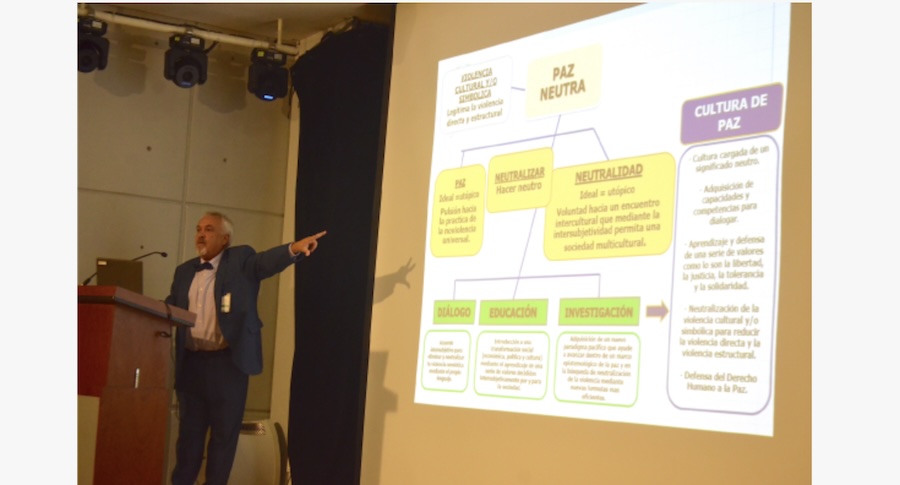… EDUCATION FOR PEACE …
An article by Maribel Lozoyade from UAM/UNIDAD CUAJIMALPA
A group of research professors from the Metropolitan Autonomous University (UAM) has created the Research Network on Culture of Peace, Justice and Solid Institutions. Its objective is to promote a culture of peace through reflection, education and discussion of issues, as well as the implementation of actions that contribute to the strengthening of the ideals of peace. This initiative seeks to intervene and have a social impact in solving problems from various disciplines.

In commemoration of the International Day of Peace, established by the UN on September 21, the Network organized the First Days for Peace. The opening ceremony took place on September 18 at the Cuajimalpa Unit of the UAM, and was attended by authorities from the different academic units that are part of this university.
Dr. José Antonio de los Reyes Heredia, general rector of the UAM, inaugurated the conference and highlighted that universities and Higher Education Institutions have the responsibility of addressing priority issues, satisfying specific needs and accompanying society in its adaptation to challenges. current. This involves promoting perspectives of peace, working to eradicate violence and assuming environmental responsibility. The rector stated that the UAM has incorporated these efforts transversally into its university policies.
(Article continued in right column)
Is there progress towards a culture of peace in Mexico?
(Article continued from left column)
De los Reyes Heredia pointed out that these days highlight the efforts made by various entities to strengthen their institutions. Almost half a century after the founding of the UAM, the university is implementing strategies that reflect the important social contribution it has had over five decades. He concluded by stating that these first days reflect the identity of the university community and how they wish to be perceived as an institution.
Professor Octavio Mercado González, rector of the UAM-C, stressed that current times are characterized by enormous challenges and threats in different areas and scales. He expressed concern about the polarization of public discourse and how social media influences the local and global context. He highlighted that public universities must reaffirm their ability to contribute to the debate from a climate of respect that makes room for all voices.
“Working in cultures of peace allows us to generate spaces, agreements, but above all, reinforce the way in which the university addresses problems. Universities are not islands, they are not separated from these conflictive environments. We cannot think of the notion of a culture of peace as an absence of conflict, but as the way to address these conflicts towards mediation and construction of agreements that allow a climate of respect to give voice to all parties and to sustain the life of the community.”
Dr. Gabriel Pérez Pérez, director of the Division of Social Sciences and Humanities, explained that the First Conference for Peace takes place until September 22 in different spaces of the UAM academic headquarters. He thanked the work of Dr. Jesús Elizondo, research professor at the UAM-C and head of the Research Network on Culture of Peace, Justice and Solid Institutions, for his remarkable work in ensuring that these sessions were carried out in a public space such as the UAM.
Finally, Dr. Claudia Salazar Villava, member of the Network, spoke on behalf of her research team and highlighted that this initiative seeks to create spaces for learning, debate, reflection and exchange to strengthen the work in favor of peace and justice from different units and approaches. “The network seeks for this Culture of Peace week to be the stage that makes visible the institutional efforts that contribute to the strengthening of peace, the peaceful transformation of conflicts and harmony. We must address the context of violence that affects the daily lives of the university community by promoting reflection and the development of strategies of respect, mutual care and supportive forms of coexistence.